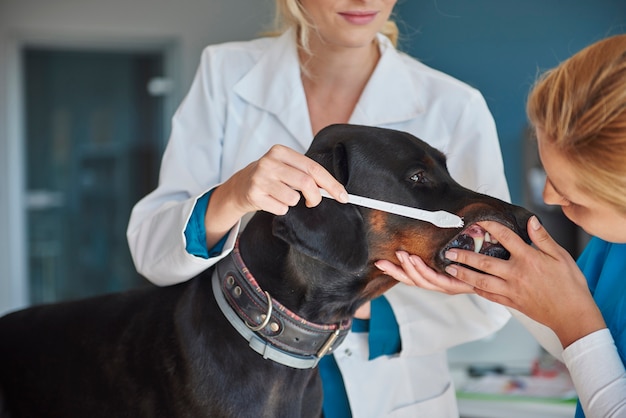Common Signs of Pain in Pets and When to Act


Common Signs of Pain in Pets and When to Act
When your pet is part of the family, even small changes in their behavior can be cause for concern. One of the most challenging situations for pet owners is recognizing when a beloved dog or cat might be experiencing pain. Because pets cannot tell us when they hurt, it is up to you—and your veterinary team at Coble Animal Hospital in Springfield, IL—to spot the subtle and obvious signs of discomfort. Learning what to watch for is key to ensuring your pet’s health and happiness.
In this blog, we will guide you through the most common signs of pain in pets, explain what causes discomfort in dogs and cats, describe how effective pain management for pets works, and share steps you can take at home. We will also help you decide when it’s time to schedule an appointment with your local veterinarian. Whether you are searching for a “vet near me” for prompt pain assessment or looking to understand more about pain management for pets in Springfield, this article will empower you to take compassionate action for your companion’s wellbeing.
If you are worried your dog or cat might be in pain, our veterinary professionals at Coble Animal Hospital are here to help. We use advanced pain management services and in-house diagnostics to create personalized treatment plans for pets in Springfield and surrounding communities.
Recognizing the Signs of Pain in Pets
Spotting pain in pets is not always straightforward, as cats and dogs often hide discomfort as a survival instinct. However, there are a number of physical and behavioral clues that may indicate your pet is hurting.
Physical and Behavioral Symptoms to Watch For
Key symptoms of pain in pets include limping, reluctance to move or jump, and noticeable changes in posture. You might also see your pet favoring one limb, moving more slowly than usual, or having difficulty getting up from a lying position. In cats, pain can be particularly subtle; watch for decreased grooming, hiding more often, or changes in how they jump onto furniture.
Behavioral changes are another important sign. Pets in pain may become unusually withdrawn, irritable, or even aggressive when touched. Some animals vocalize more, such as whining or meowing, while others become quieter than usual. Loss of appetite, changes in bathroom habits, and excessive licking or biting at a specific area of the body can also be indicators that something is wrong.
Other signs to watch for are rapid or shallow breathing, trembling, and restlessness. Dogs may pant even when not hot, and cats might breathe with their mouth open. If you notice these symptoms, especially if they persist or worsen, it is important to reach out to your veterinary team for guidance.
Subtle Changes That Matter
Even small changes in your pet’s daily routine can signal discomfort. For example, if a normally playful dog becomes uninterested in walks, or if your cat stops using the litter box, pain may be a factor. Trust your instincts—pet owners know their companions best, and any persistent change in behavior warrants attention.
Understanding Why Pets Experience Pain
Pain in pets can have a wide range of causes, from acute injuries to chronic medical conditions. Understanding the reasons behind your pet’s discomfort can help you and your veterinarian determine the best course of action.
Common Causes of Pain in Dogs and Cats
Injuries such as sprains, strains, or fractures are an obvious source of pain. Pets can also suffer from dental disease, which can make eating uncomfortable and lead to changes in appetite or drooling. Arthritis is a frequent cause of chronic pain, especially in older animals, leading to stiffness and reduced mobility.
Other causes include surgical procedures, infections, and internal illnesses such as pancreatitis or urinary tract disease. Cats are particularly prone to painful conditions like bladder inflammation or dental resorption, which may not be immediately noticeable. Skin issues, ear infections, and even some types of cancer can also result in significant discomfort.
Certain environmental or seasonal factors in Springfield, such as icy winter sidewalks or hot summer pavement, may contribute to injuries or exacerbate existing joint pain. Being aware of these risks can help you protect your pet throughout the year.
Why Prompt Action Matters
Pain not only affects your pet’s comfort but can also impact their overall health. Untreated pain may lead to decreased mobility, weight gain, anxiety, and a diminished quality of life. Early identification and intervention by a veterinary professional are essential to prevent complications and support your pet’s long-term wellbeing.
Professional Pain Management for Pets in Springfield
When your pet is hurting, seeking expert care is the most effective way to ease their discomfort and address the underlying cause. At Coble Animal Hospital, our approach to pain management for pets in Springfield combines advanced diagnostics, compassionate care, and modern treatment options.
Comprehensive Diagnostic Tools
Effective pain relief begins with an accurate diagnosis. Our veterinary team uses a range of in-house diagnostic tools to pinpoint the source of your pet’s pain. These may include physical examinations, digital radiology for detailed imaging, and diagnostic laboratory testing for bloodwork and other analyses. These resources allow us to quickly identify injuries, arthritis, infections, or internal issues so that we can create a targeted treatment plan.
Treatment Approaches for Acute and Chronic Pain
Treatment options for pets in pain involve a combination of medications, therapies, and lifestyle adjustments. Our veterinary professionals may recommend anti-inflammatory medications, pain relievers, or disease-modifying drugs depending on the type and severity of pain. For certain conditions, we offer cold laser therapy, which can promote healing and reduce inflammation.
If your pet requires surgery, our team provides comprehensive pain control before, during, and after the procedure. For chronic issues like arthritis, we may suggest joint supplements, weight management strategies, and physical therapy exercises to support long-term mobility and comfort. Our pain management services are always tailored to your pet’s unique needs and are delivered with a focus on safety and compassion.
The Role of Ongoing Monitoring
Pain management is not a one-time event; it requires ongoing evaluation and adjustment. Regular check-ins with your veterinarian ensure that your pet’s treatment remains effective and that any new or changing symptoms are addressed promptly. Our goal is to create a partnership with you so that your pet enjoys the best possible quality of life.
Steps You Can Take at Home to Support Your Pet
While professional care is essential, there are practical steps you can take at home to help manage your pet’s pain and improve their comfort.
Creating a Comfortable Environment
Providing a soft, supportive bed in a quiet area helps pets rest more easily. For dogs with arthritis, non-slip rugs or ramps can make it easier for them to move around the house. Cats benefit from easy access to litter boxes and food bowls placed at a comfortable height.
Gentle Activity and Weight Management
Encouraging gentle exercise, such as short walks or interactive play sessions, can help maintain your pet’s mobility. Keeping your pet at a healthy weight reduces strain on sore joints and minimizes pain. If you have questions about appropriate activity levels, your veterinarian can offer guidance tailored to your pet’s condition.
Monitoring and Communication
Keep a daily log of your pet’s symptoms, noting any changes in appetite, mobility, or mood. This information is valuable for your veterinary team when assessing treatment progress or making adjustments to your pet’s pain management plan.
What Not to Do
Never give human pain medications to your pet without veterinary approval, as some drugs can be toxic to animals. If you are unsure about any aspect of your pet’s care, consult with your veterinarian before making changes.
When to Seek Veterinary Care
Knowing when to schedule an appointment with your veterinarian is crucial for your pet’s health and comfort. Some situations require prompt attention, while others can be addressed at a regular wellness visit.
Red Flags That Require Immediate Attention
If your pet is unable to walk, cries out in pain, experiences sudden paralysis, or has difficulty breathing, seek veterinary care immediately. Persistent vomiting, loss of consciousness, or severe swelling are also emergencies. For these urgent situations, contacting your veterinary professionals right away ensures your pet receives the treatment they need.
When to Schedule an Appointment
For more subtle symptoms—such as changes in activity, persistent limping, or decreased appetite—schedule a comprehensive wellness examination with your veterinarian. Early intervention can prevent minor issues from becoming serious health problems.
If you are searching for a quality “veterinary services near me” or need expert pain management for pets in Springfield, our team at Coble Animal Hospital is ready to support you with advanced diagnostics, compassionate care, and a commitment to your pet’s wellbeing.
Compassionate Care for Pets in Pain: Your Next Steps
Recognizing the signs of pain in pets is one of the greatest gifts you can give your dog or cat. From subtle shifts in behavior to clear physical symptoms, your observations are vital for keeping your companion healthy and comfortable. Our veterinary professionals at Coble Animal Hospital in Springfield, IL are dedicated to helping families in Springfield and surrounding communities with effective pain management for pets, advanced diagnostics, and ongoing support.
If you are concerned about your pet’s comfort or want to learn more about pain management for pets in Springfield, schedule an appointment with our team today. We encourage you to call us at (217) 789-0011 or visit our website to request an appointment. Our focus is always on providing the highest standard of care in a warm, family-friendly environment.
For those searching for a “vet near me” who truly understands your pet’s needs, Coble Animal Hospital is here to help. Explore our pain management services or book a wellness examination to ensure your dog or cat is living their happiest, most comfortable life.
If you notice any new or worsening signs of pain in your pet, don’t wait—contact our veterinary professionals today. Your pet’s comfort and health are always our top priorities.
This blog is for informational purposes only and does not replace professional veterinary medical advice. Always consult with your veterinarian for specific concerns about your pet’s health or symptoms. For urgent issues, seek immediate veterinary attention.

















